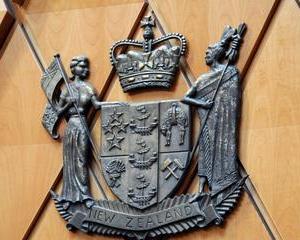
Waitaki District Health Services (WDHS) announced a new contract with Te Whatu Ora Health New Zealand for Oamaru Hospital, and a funding increase of $3.5 million a year, on Tuesday.
Yesterday, Gore Health chief executive Karl Metzler wrote to Te Whatu Ora outlining his concerns and "significant frustrations" with what he characterised as "inequity", and Waitaki being rewarded for "poor performance".
In response, WDHS chief executive Keith Marshall warned against making comparisons between Gore and Oamaru health services, and Te Whatu Ora said it was committed to working in partnership with all its rural hospitals.
Notwithstanding, Mr Metzler called for an independent review of funding and purchasing frameworks that bolstered a "continued perpetuation of inequity across the rural trust boards".
Gore Health, serving Eastern Southland and West Otago, was set up for a similarly sized population but received $8 million less in base funding than Waitaki.
The significant imbalance disadvantaged Gore Hospital’s community and if continued would result in unfairness for people trying to access health services.
In Gore, health services had secured financial sustainability by adding complementary services alongside publicly funded services.
Gore Health had a general practice and dental surgeries, and had become the largest franchisee of skin cancer skin-mapping and monitoring system Molemap NZ.
The moves were critical to its financial and clinical survival.
"Over the past 10 to 15 years Gore Health has been forced to take 5% funding cuts, restructure staffing on three occasions and reconfigure our clinical workforce, given the lack of funding made employing rural hospital specialists unfeasible."
On the other hand, WDHS had undergone reviews, received recommendations and no changes were made "or expected", he said.
"The continuation of funding increases, despite these inactions, appears to be rewarding poor performances."
Gore Health’s hospital had run a deficit of about $500,000 for many years, but this was because it was underfunded, not financially mismanaged.
At Gore, health services were expected to operate with the lowest number of nursing staff across the district.
In a 2018 review of Waitaki health services, Mr Metzler acted as a critical friend to both WDHS and the former Southern District Health Board.
At the time, WDHS advised the health board it had an operating deficit of $1.7 million and within four to five months it would not be able to meet its liabilities.
The review stated the 24-bed Oamaru Hospital and the 20-bed Gore Hospital each served similar populations of more than 20,000 people, but Oamaru received $10,698,786 in 2018-19, while Gore got $5,727,240 from the health board.
Yesterday, Mr Marshall said his Gore counterpart’s "general concern" was accurate, but to compare Gore and Waitaki was not a "sensible" comparison.
A WDHS review in 2016-17 produced extensive recommendations that were not implemented after the health board decided not to fund the changes, during contract negotiations.
Then in 2018 Oamaru Hospital by and large carried out a suite of recommendations that actually cost the hospital more.
Further, he had used Gore Hospital as a benchmark in the review.
"There’s just no way that you can compare the two hospitals because the mix of services that we both deliver is just hugely different."
If hospitals were dealing with more complicated medical conditions, they would need more staff.
Te Whatu Ora hospital and specialist services Te Waipounamu regional director Dan Pallister-Coward said a review of rural services was already a priority.
WDHS’s funding boost brought its contract with Waitaki in line with the other rural hospitals in the South, "including Gore".
There was also an additional increase for pay parity for nurses at Oamaru Hospital.
"Rural hospitals are an important and essential part of the health network in the Southern district and they have all been very innovative.
"We acknowledge that Gore has been a leader in this."












